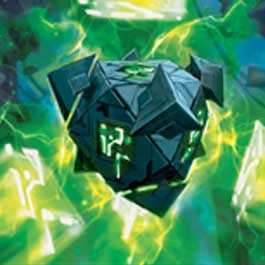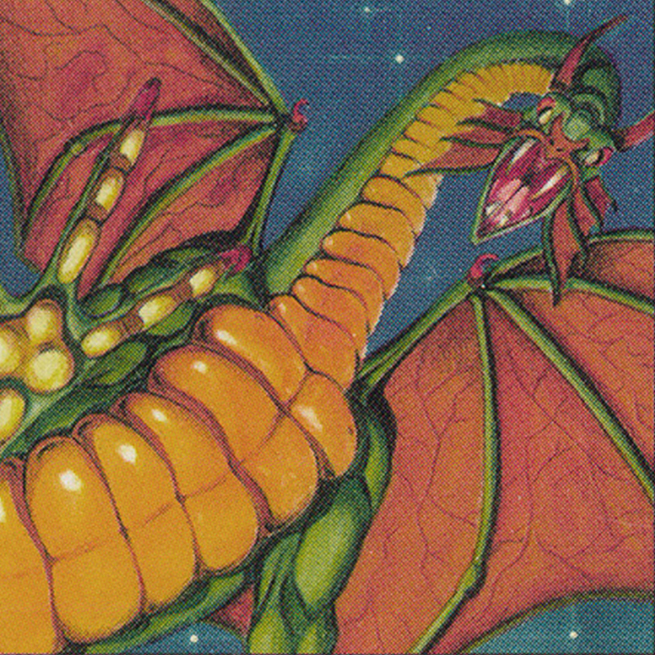What did it feel like to work on the very first Magic set, the one that would go on and change the gaming world forever?
Only a handful of people in the world know it, and Jesper Myrfors is one of them.
Today we're proud to share a very special interview with Jesper, who not only was the very first Art Director of the game, but also illustrated more than 50 Magic cards, including the original Dual lands.
Since Jesper shared so many incredible stories with us, we decided to split this interview in two parts, and we'll publish the second part next Wednesday.
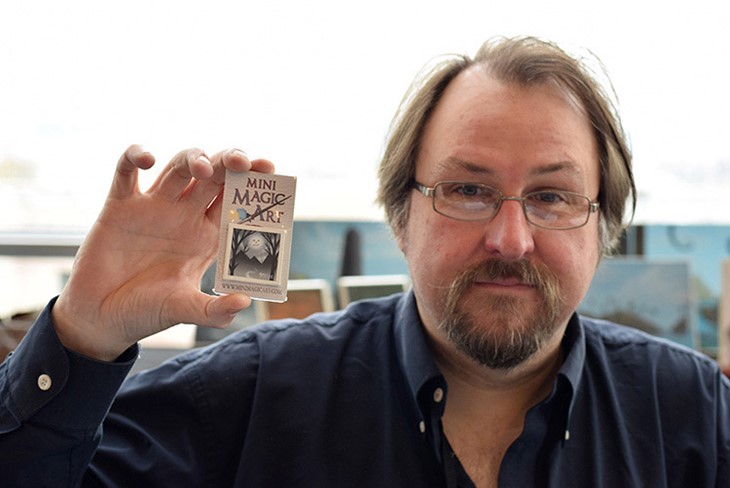
How did you start?
I've been interested in fantasy my whole life, both my parents like fantasy and science fiction, so I was brought up around it. I had friends who wanted to be like race car drivers or astronauts, I wanted to be an artist.
What did you study?
I went to an art school called Cornish College of Art. The school was nonstop work, one deadline after another, and it also focused heavily on criticism, which was nice.
Every teacher I had there said that fantasy art wasn't a career, it didn't exist, so I promised myself in my junior year that I would have published work in the fantasy art market before I came back as a senior, and that led me to Wizards of the Coast.
And how did you find them?
At the time I really enjoyed a game called Talislanta, which was a fantasy role playing game, and Wizards of the Coast had bought the rights to it. I contacted them with my portfolio, and they said they liked it but the work wasn't appropriate, so I said "look, how about you give me a chance, and I'll do a piece. If you don't like it, we can just part ways", and they agreed.
So I did two pieces over the weekend and they liked it, and that's how I got my foot in the door. Then they kept asking me to do more and more stuff, and said that if I wanted to be part of the company to show up to their weekly meetings, and so I did.
"The original plan Wizards had was to use secondary rights art for Magic cards, using famous book covers and famous record albums"

So you started attending the weekly meetings...
"Yes, and they would sneak off to have these special meetings that I wasn't invited to because I was a newcomer, which felt a little culty". they run off and I'm left to wonder if I'm being prepared for sacrifice.
They didn't want to let me know about it because they were discussing Magic, and the game was so groundbreaking they couldn't let it out of the company. Eventually, they hired me on as art director, because Lisa Stevens wanted to do other things.
When they first showed me Magic, and at that moment, I said: "please stop paying me, I want all that money in stock, because this game's gonna change the world".
So when people asked if I knew, I did know.
I think it was Richard who said in an interview that he knew he had something special when the playtesters kept asking to play the game in his absence.
Yeah that's what it felt like. Well, you know, you played.
But things were different back in 93, there was not much stuff out there, it was still very small.
It was really small. It probably started with H.G. Wells, I think he published the first miniature games, then Dungeons and Dragons really helped push it out beyond where it was, and that was kind of a gold standard for a long time. White Wolf pushed the scene more into the mass market, they had a very adult and literary take on gaming, they did a really good job and the audience blew up.
People started taking gaming at something that's more than just for high school nerds and kids. Alongside all of this of course was the Warhammer franchise, they were also pushing gaming to the mass market from another front. I think Magic landed right in the middle of that and made a big splash that went beyond the pond, but I don't think that pond would have been there at all without the foundation laid down by those other companies and creators.
"He quit, sold his stock, then drove the car up to the to the back of the house, pulled up with his stereo blaring, called us all suckers and drove away laughing. I think that stock would been worth 2.5 million dollars"
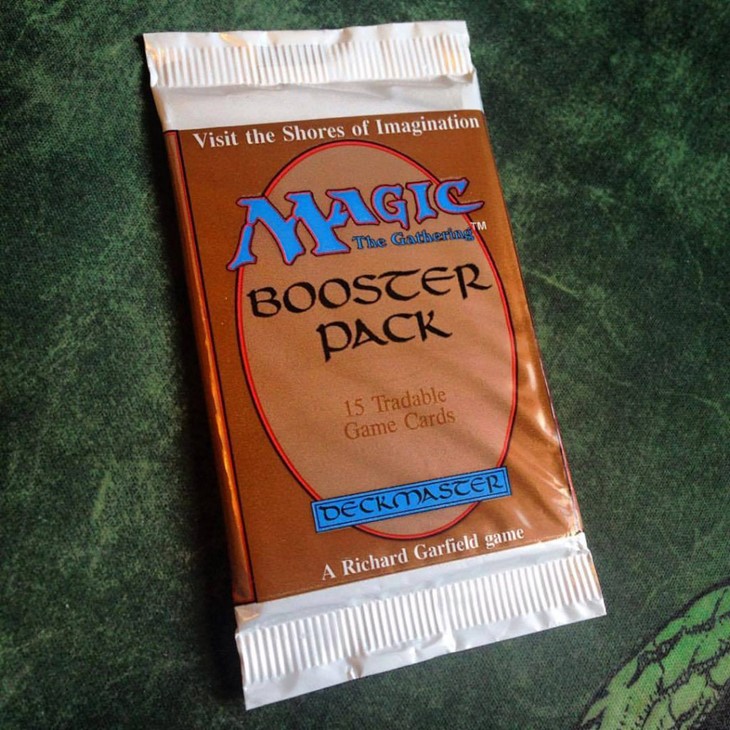
So you were hired as an art director. What happened next?
Well, originally, I was working on the Talislanta books and Primal Order, and those were the projects I started to gather the base of artists that I wanted to work with. Some of the artist I was in school with, because I was working on Magic before I graduated from college.
We never viewed ourselves as the kind of company that was going to stay small, we always envisioned what we were going do when we had more money to spend on stuff, and I had this growing pool of artists that I wanted to use in that kind of a situation, so I started to pull them from these sources originally.
Julie Baroh [one of Magic's original 25 artists] told me your excitement was contagious.
Do you remember earlier how I said the atmosphere was sort of cult like? I meant that as sort of a joke about how they were excluding me from the meetings, but it more applied to me. I had almost an evangelical fervor about the game, I believed in it that much.
And I've heard from other artists that it was my excitement of the project that got them involved because they didn't really understand what the game was.
I should also say that before Magic I had met Richard Garfield. Richard brought another game to the company called Roborally and I was art directing it, it got put on the shelf because everyone got so excited about Magic.
Was he as excited as you were at the time?
You know, Richard doesn't really show excitement. He does, but... I would not like to play poker against him. I can tell when he's happy and I can tell when he's thinking about something, but I don't know if I've ever seen him mad or anything.
"With blue cards, that's actually marble paper on the old borders"
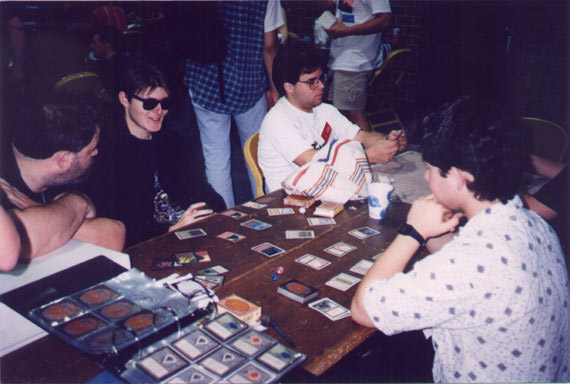
Did he believe that the game was going to blow up like you did?
He did. I think there was only one person on the project who didn't think it was going to be huge, and he quit, sold his stock to buy a car stereo if I remember correctly. Then he drove the car up to the to the back of the house that was being rented, the basement we were in as a company, pulled up with his stereo blaring, called us all suckers for not selling our stock and drove away laughing.
I think that stock would been worth 2,5 million dollars.
Did you have to get the art out the door as soon as possible or did you have some time to prepare?
So what happened is Peter Adkison, the CEO, had - I think - double mortgaged his house at that point, and money was almost gone in the company. We were all working for stock at that point because there just was no cash. It was a gamble everyone was taking, he taking it more than anyone else at that point.
"Artists you worked with mentioned that you gave them a lot of creative freedom, you would say like "OK this is a red card, blue card, it has this theme, this is the name, go."
Yeah, that's pretty accurate. This really hadn't been done to this scale, and I knew we couldn't have a uniform look because that would be too much time and too much money, and I also didn't think it was necessary.
The original plan Wizards had was to use secondary rights art for Magic cards, using famous book covers and record albums. I told them I could get original art that hasn't been used anywhere else, and it'll cost less in the short term, and in the long term, it will take these people and their career along with us, so everybody wins, and the company agreed.
I was very loose with the descriptions because I fundamentally trusted their vision on the project. If I didn't I wouldn't have hired them.
"We had planned it [Alpha inventory] to last six months, and it sold out in weeks. It evaporated from the warehouse. Gone. We were left there with nothing"
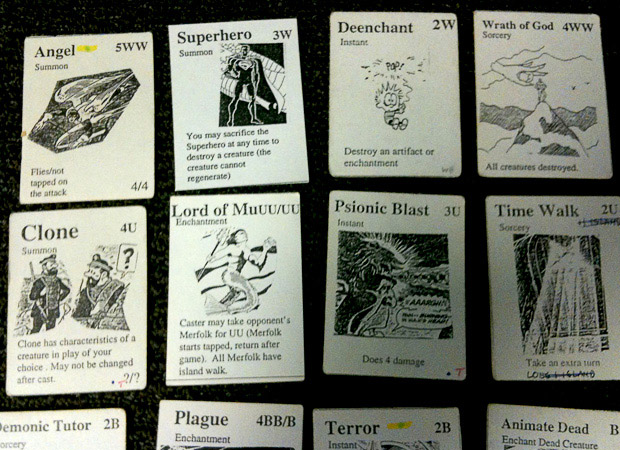
In hindsight, would you have done something different?
The only thing I would have done different is something that would have been impossible to do. There are certain artists I wish I had hired, but I didn't know about them. That doesn't mean I wish I hadn't hired some of the original artists, maybe I could have given up some of my own pieces and a few of these other artists could have been included, that's what I would like to have changed.
How satisfied were you with the overall product when Alpha came out?
Eighty five percent satisfied with it. And since then, it's probably gone down to fifty five percent satisfied with it. That's probably where it is.
What's the reason behind the change?
Because looking at it I can see all the things that I could have done differently, that I think aesthetically would have looked better, and the longer it's been around the longer I've been looking at it and the more that hits me. There's certain things I really like about it, like the card back (but I don't like the deckmaster on it), I'm still proud of it, but there are certain things in the borders that I don't like. I really don't like the legends border, that gold, that's one I wish I could have redone.
Also, Magic was the first project that I ever used Photoshop on, it was kind of a sink or swim thing. I thought I could do it, they believe I could do it, but anything could have happened. That's one reason why so many actual physical elements were used on Magic cards; like the blue cards, that's actually marble paper on the old borders, and the back of the card was mostly hand painted.
"After a while it got to be kind of strange because I'm starting to just show up and people are treating me like I'm famous"
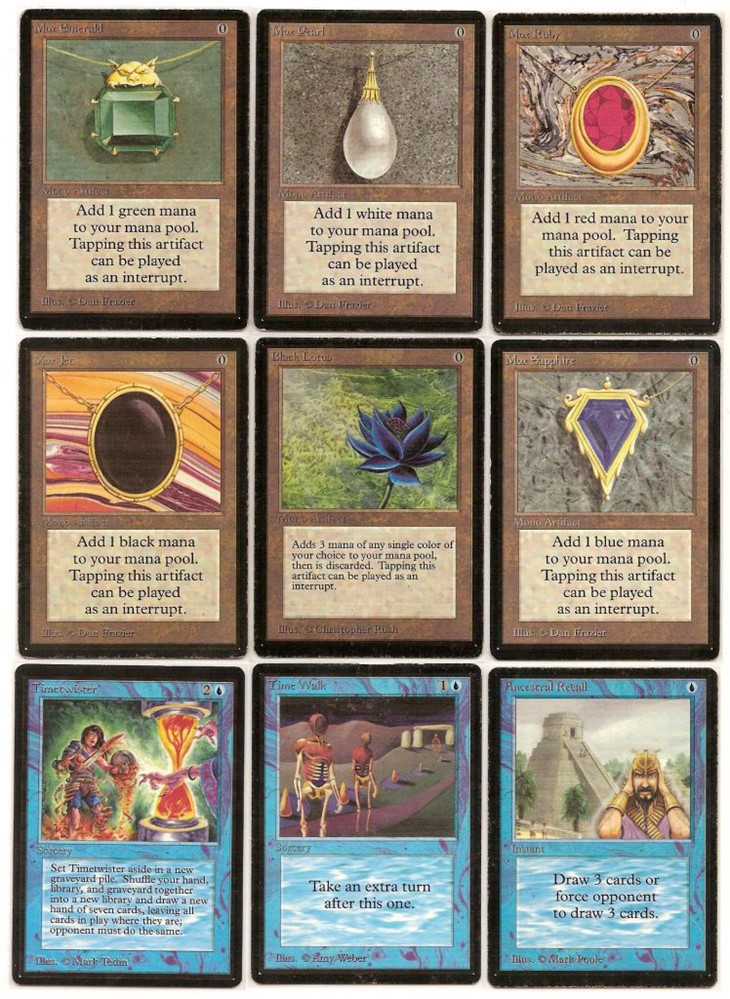
So the game comes out. How long did it take for the prophecy to come true, and the game to blow up?
It was laughably fast. We had planned it to last six months, and it sold out in weeks. It evaporated from the warehouse. Gone. We were left there with nothing.
As I said, we were in a dire financial state, and the printing costs for full color cards on the quality of paper we wanted was pretty high. We were not going to release a product that you play a couple of times and the cards fall apart, because every single person in the company was a gamer, and we didn't want to release a game that we were embarrassed of, especially not a game this good.
So we searched through all kinds of cards stock to find the one that would be the most flexible, the one that wouldn't tear at the edges. We went through a lot of personalized testing on different cards, and everything became about the quality of it, and that caused it to be pretty expensive. It's also why the original magic packs have a very simple printing scheme on the boosters, it was a cheaper and we wanted all the money we had to go into the actual game, the part the players handled, so the packaging wasn't that important.
The CEO scrounged enough money together, he went on like a roadshow to raise money. I believe he traveled around the country to friends, sort of showing people the game, and I had mocked up cards so people could see what the real cards would look like on color print outs. He managed to raise enough money to do a small print run, which was a fraction of what we wanted to print. This is how you get Alpha and Beta.

Alpha was printed with that little bit of investment money and the mortgaging of his house. And as soon as we got money from Alpha we threw it into Beta, and that's why Beta is a slightly bigger run. It also wasn't just the sales of Alpha, when Alpha started to sell we got more investment because people could see that we actually had something worthwhile here. So we managed to raise enough money quickly to get Beta out.
What kind of feedback were you getting from the players?
This was early early Internet days, websites were barely a thing, there was no social media, so we mostly got emails or fan mail and sometimes phone calls. We would go to game stores to promote it, and after a while it got to be kind of strange because people are treating me like I'm famous.
I showed up at the Virgin store in London and one guy was so nervous to meet me he was shaking, and to me that is still such a bizarre experience. I don't see myself as different than that person. I found unsettling. That's when I knew this game was becoming really big.
How big were you as a team at this point?
Approximately ten or eleven, maybe twelve.
And still out there at the garage?
"Yes. I don't think we left the garage until" [thinks] Legends. Or just prior Legends.
Meet us next week for another interview!




